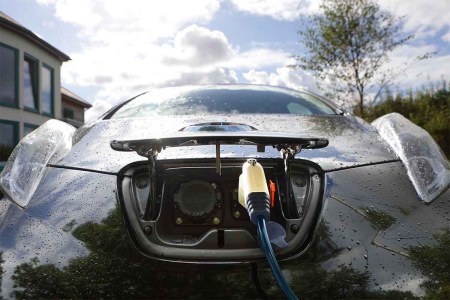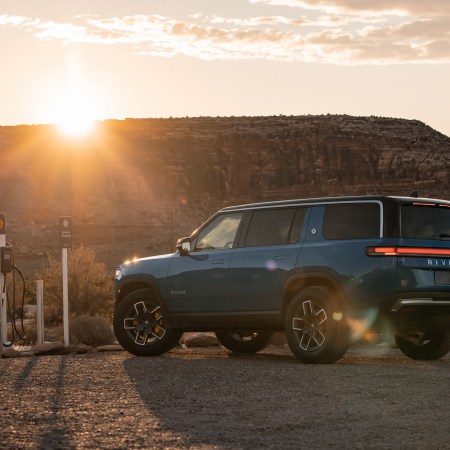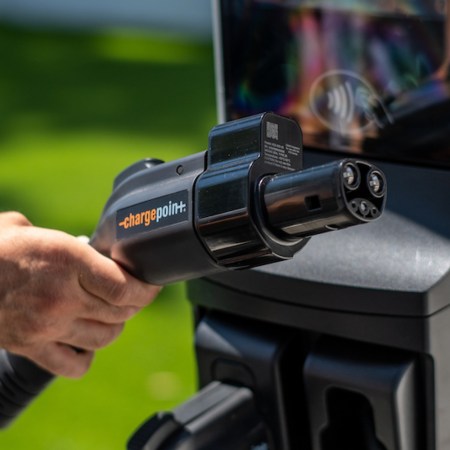Even as automakers have been adding caveats to the ambitious EV goals they’d set years before, ownership of electric vehicles is on the rise in the U.S. But more electric vehicles is just one part of a larger change — specifically, one where infrastructure plays a large part. When InsideHook spoke with EV owners earlier this year, a running theme was the hope that charging infrastructure would be beefed up.
While the nation’s overall number of public charging stations is growing, there’s one issue that’s increasingly complicating this discussion: whether those chargers are operating at their full capacity. And, based on a recent Bloomberg investigation by Kyle Stock, that isn’t always the case.
Among the data points cited in the article is one alarming statistic from Stable Auto, a company involved in the planning of charging networks’ locations. They found that in 2022, at public chargers that boasted charging of at least 100 kW, the average output was just over half that — 52 kW. It’s not hard to imagine a driver coming across the promise of fast charging and getting something much slower — and that souring their experience of operating an EV.
This isn’t the only logistical issue affecting EV infrastructure. Last month, the New York Times‘ Jack Ewing reported that Tesla’s much-discussed plan to open up its charging network to other vehicles was going far slower than expected. Ewing wrote that “around 100” Supercharger locations are now compatible with models from other automakers. That’s good — but given that there are over 2,200 Supercharger locations in the U.S., there’s a long way to go.
New UK Homes Will Be Required to Have EV Chargers Starting in 2022
The legislation follows a planned ban on the sale of new gas cars, which is set for 2030Earlier this year, The Washington Post reported that federal funding to bolster the nation’s EV charging network had gone far more slowly than expected. Among the reasons for the delays is one very understandable one: it’s the first time agencies have done something like this. “We are building a national EV charging network from scratch, and we want to get it right,” a Federal Highway Administration spokesperson told the Post. That makes sense — but drivers don’t have infinite patience.
This article was featured in the InsideHook newsletter. Sign up now.



















